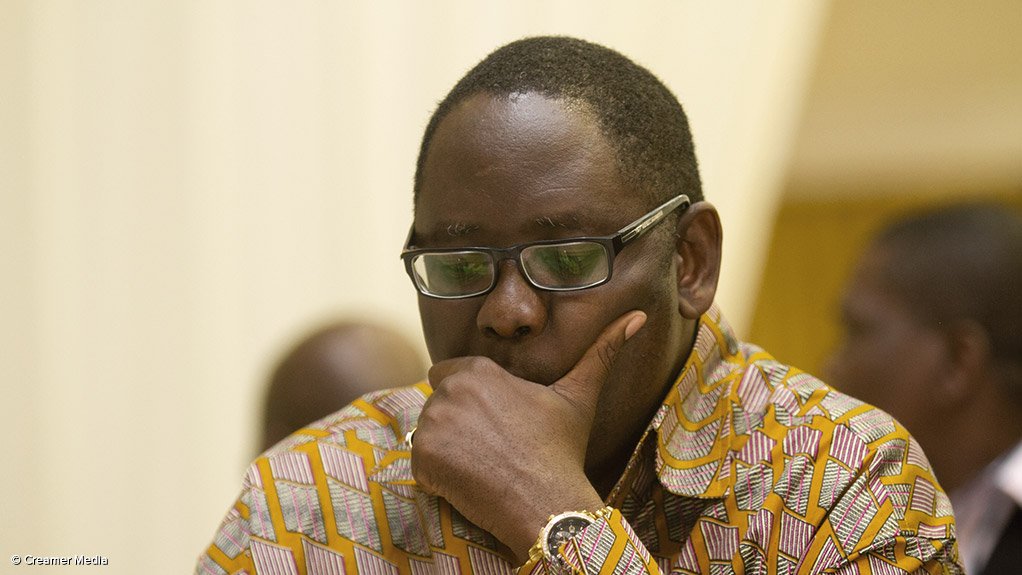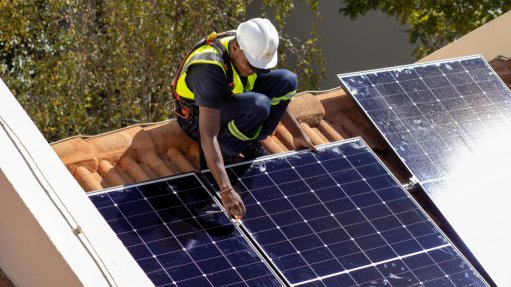Eskom cannot be saved without delving into the root causes of its struggles
As trade unions and civil society gear up to tackle South Africa’s electricity crisis from a worker and community standpoint, former Congress of South African Trade Unions general secretary Zwelinzima Vavi weighed in on what he believed needed to be done to save South Africa’s ailing State-owned power utility Eskom.
However, no solutions would be found unless an independent review was undertaken of how South Africa ended up with chronic load-shedding, electricity supply shortages and prospects of increased electricity tariffs, he stated.
Addressing delegates on the final day of the four-day Civil Society Conference on the electricity crisis, Vavi echoed the calls of civil society and trade unions for an independent judicial commission of enquiry or investigation into Eskom’s electricity supply crisis.
There was a need to unpack what led to the parastatal’s “financial meltdown”, including whether or not there was maladministration by Eskom’s senior management, a “devastating” downgrading of Eskom by capital markets and ballooning debt for the utility as municipalities failed to pay their bills for power supply.
The enquiry would also need to examine the “massive cost and time overruns” in the construction of the Medupi and Kusile power stations, the management of the utility’s contracts, “apparent mismanagement and corruption” within Eskom and bonuses paid to Eskom directors and executives.
“Without finding the root causes, the war room of the elite would not give us the solution. Was it Apartheid [that had led to the continual power shortages] as President [Jacob Zuma] claimed or was it gross negligence by the government?” he questioned, dismissing Zuma’s claim that an increased number of electricity connections to previously unserved citizens had led to the power shortage dilemma.
Vavi pointed out that Eskom had approached the government in 1996/7, warning of power shortages within a decade.
United Front interim national secretary Mazibuko Jara previously indicated that the new electricity consumers – 50% of households – used less than 2% of all electricity as power had become “extremely expensive” in the last eight years and the 50 kWh free basic electricity was inadequate for many households.
Vavi said it was now time to look at the matter that has had such a negative impact on the economy so it could be solved “once and for all”.
As the “core fuel” of the South African economy, the insufficient generation and supply of electricity was likely to cause more job losses and weigh even more on an economy where much of the population lived in poverty and were unemployed.
South Africa’s expanded unemployment rate – including those that had given up on finding a job – currently stood at 36.1%, equating to about 8.7-million of the working-age population sitting without a job.
The hard-hit working class, which had already felt the ripple effect of the ongoing power crisis, would face increasing hardship as Eskom continued to request further price hikes.
Eskom had approached the National Energy Regulator of South Africa (Nersa) for a 25% tariff hike within its 2013/14 to 2017/18 multiyear price determination (MYPD3).
This emerged as Finance Minister Nhlanhla Nene this week tabled in Parliament the Eskom Special Appropriation Bill and the Amendment Bill, which would enable the respective appropriation of the R23-billion allocated to the power utility and the conversation of the R60-billion existing subordinated loan to Eskom into equity.
Vavi called on workers and communities to attend the Nersa public hearings to reject the proposed increases to the electricity tariffs until the proposed judicial enquiry was undertaken.
The approval of the tariffs would shut several marginal mines and many more business, exacerbating the crisis of unemployment, poverty and inequality.
Comments
Press Office
Announcements
What's On
Subscribe to improve your user experience...
Option 1 (equivalent of R125 a month):
Receive a weekly copy of Creamer Media's Engineering News & Mining Weekly magazine
(print copy for those in South Africa and e-magazine for those outside of South Africa)
Receive daily email newsletters
Access to full search results
Access archive of magazine back copies
Access to Projects in Progress
Access to ONE Research Report of your choice in PDF format
Option 2 (equivalent of R375 a month):
All benefits from Option 1
PLUS
Access to Creamer Media's Research Channel Africa for ALL Research Reports, in PDF format, on various industrial and mining sectors
including Electricity; Water; Energy Transition; Hydrogen; Roads, Rail and Ports; Coal; Gold; Platinum; Battery Metals; etc.
Already a subscriber?
Forgotten your password?
Receive weekly copy of Creamer Media's Engineering News & Mining Weekly magazine (print copy for those in South Africa and e-magazine for those outside of South Africa)
➕
Recieve daily email newsletters
➕
Access to full search results
➕
Access archive of magazine back copies
➕
Access to Projects in Progress
➕
Access to ONE Research Report of your choice in PDF format
RESEARCH CHANNEL AFRICA
R4500 (equivalent of R375 a month)
SUBSCRIBEAll benefits from Option 1
➕
Access to Creamer Media's Research Channel Africa for ALL Research Reports on various industrial and mining sectors, in PDF format, including on:
Electricity
➕
Water
➕
Energy Transition
➕
Hydrogen
➕
Roads, Rail and Ports
➕
Coal
➕
Gold
➕
Platinum
➕
Battery Metals
➕
etc.
Receive all benefits from Option 1 or Option 2 delivered to numerous people at your company
➕
Multiple User names and Passwords for simultaneous log-ins
➕
Intranet integration access to all in your organisation




















